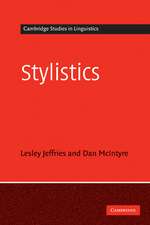Modern Dogma and the Rhetoric of Assent
Autor Wayne C. Boothen Limba Engleză Paperback – 30 sep 1974
When should I change my mind? What can I believe and what must I doubt? In this new "philosophy of good reasons" Wayne C. Booth exposes five dogmas of modernism that have too often inhibited efforts to answer these questions. Modern dogmas teach that "you cannot reason about values" and that "the job of thought is to doubt whatever can be doubted," and they leave those who accept them crippled in their efforts to think and talk together about whatever concerns them most. They have willed upon us a "befouled rhetorical climate" in which people are driven to two self-destructive extremes—defenders of reason becoming confined to ever narrower notions of logical or experimental proof and defenders of "values" becoming more and more irresponsible in trying to defend the heart, the gut, or the gonads.
Booth traces the consequences of modernist assumptions through a wide range of inquiry and action: in politics, art, music, literature, and in personal efforts to find "identity" or a "self." In casting doubt on systematic doubt, the author finds that the dogmas are being questioned in almost every modern discipline. Suggesting that they be replaced with a rhetoric of "systematic assent," Booth discovers a vast, neglected reservoir of "good reasons"—many of them known to classical students of rhetoric, some still to be explored. These "good reasons" are here restored to intellectual respectability, suggesting the possibility of widespread new inquiry, in all fields, into the question, "When should I change my mind?"
Booth traces the consequences of modernist assumptions through a wide range of inquiry and action: in politics, art, music, literature, and in personal efforts to find "identity" or a "self." In casting doubt on systematic doubt, the author finds that the dogmas are being questioned in almost every modern discipline. Suggesting that they be replaced with a rhetoric of "systematic assent," Booth discovers a vast, neglected reservoir of "good reasons"—many of them known to classical students of rhetoric, some still to be explored. These "good reasons" are here restored to intellectual respectability, suggesting the possibility of widespread new inquiry, in all fields, into the question, "When should I change my mind?"
Preț: 286.51 lei
Nou
Puncte Express: 430
Preț estimativ în valută:
54.83€ • 56.64$ • 45.63£
54.83€ • 56.64$ • 45.63£
Carte tipărită la comandă
Livrare economică 25 martie-08 aprilie
Preluare comenzi: 021 569.72.76
Specificații
ISBN-13: 9780226065724
ISBN-10: 0226065723
Pagini: 254
Dimensiuni: 152 x 229 x 20 mm
Greutate: 0.32 kg
Ediția:Revised
Editura: University of Chicago Press
Colecția University of Chicago Press
ISBN-10: 0226065723
Pagini: 254
Dimensiuni: 152 x 229 x 20 mm
Greutate: 0.32 kg
Ediția:Revised
Editura: University of Chicago Press
Colecția University of Chicago Press
Notă biografică
Wayne C. Booth (1921–2005) was the George Pullman Distinguished Service Professor at the University of Chicago. His many books include The Rhetoric of Fiction, A Rhetoric of Irony, The Power and Limits of Pluralism, The Vocation of a Teacher, and Forthe Love of It, all published by the University of Chicago Press.
Cuprins
Introduction
1. Motivism and the Loss of Good Reasons
The Crisis in Our Rhetoric
When Should I Change My Mind?
The Factual "Is" and the Wishful "Ought"
Five Kinds of Modern Dogma
"Good Reasons Apply to Means, Not Ends"
Some Consequences of Motivism
2. Bertrand Russell's Rhetoric and the Dogmas of Doubt
Russell as Representative Modern
Motivism in Russell
Dogmas Two and Three, the Agent and the Scene: Man as an Atomic Mechanism in a Universe That Is Value-Free
Dogma Four, the Principles of Knowing
The Preacher Liberated
Dogma Five, the Purposes of Argument
The Triumph of Russell's Modernism
3. The Dogmas Questioned
Changes of Scene and Dramatis Personae
Nature and Knowledge Revivified
Nature as Will or Act
Reality as Feeling: The Wisdom of the Body
Divers Orders, Divers "Logics"
Doubt and Assent
The Criterion of Falsifiability
Systematic Assent
What Do We Know About Ourselves and Our World?
The Self as a Field of Selves
The Purposes of Rhetoric
4. Some Warrants of Assent, with Notes on the Topics of Protest
The Great Reservoir of Good Reasons
Value Terms and Substantive Proofs
Example 1: Finding a Concurring Public vs. Getting on the Bandwagon
Example 2: Relevance
Ethical Proof and the Demonstration of Value
Example: Sincerity
"Gut" Issues and Emotional Proof
Example 1: Dialysis Machines
Example 2: The Pocketbook
Art as the Changing of Minds
What Art Teaches
Stories as Reasons: Explicit Messages
Saying Yes and No in Literature
The Habit of Negative Rhetoric
Communal Affirmation and Denial
Appendix A. "Self-Evidently Absurd" Rhetoric: Some Pronouncements Reprinted, without Comment, by the "Other Side"
Appendix B. Two-Score and More of Witnesses Against the Fact-Value Split
Bibliography
Index
1. Motivism and the Loss of Good Reasons
The Crisis in Our Rhetoric
When Should I Change My Mind?
The Factual "Is" and the Wishful "Ought"
Five Kinds of Modern Dogma
"Good Reasons Apply to Means, Not Ends"
Some Consequences of Motivism
2. Bertrand Russell's Rhetoric and the Dogmas of Doubt
Russell as Representative Modern
Motivism in Russell
Dogmas Two and Three, the Agent and the Scene: Man as an Atomic Mechanism in a Universe That Is Value-Free
Dogma Four, the Principles of Knowing
The Preacher Liberated
Dogma Five, the Purposes of Argument
The Triumph of Russell's Modernism
3. The Dogmas Questioned
Changes of Scene and Dramatis Personae
Nature and Knowledge Revivified
Nature as Will or Act
Reality as Feeling: The Wisdom of the Body
Divers Orders, Divers "Logics"
Doubt and Assent
The Criterion of Falsifiability
Systematic Assent
What Do We Know About Ourselves and Our World?
The Self as a Field of Selves
The Purposes of Rhetoric
4. Some Warrants of Assent, with Notes on the Topics of Protest
The Great Reservoir of Good Reasons
Value Terms and Substantive Proofs
Example 1: Finding a Concurring Public vs. Getting on the Bandwagon
Example 2: Relevance
Ethical Proof and the Demonstration of Value
Example: Sincerity
"Gut" Issues and Emotional Proof
Example 1: Dialysis Machines
Example 2: The Pocketbook
Art as the Changing of Minds
What Art Teaches
Stories as Reasons: Explicit Messages
Saying Yes and No in Literature
The Habit of Negative Rhetoric
Communal Affirmation and Denial
Appendix A. "Self-Evidently Absurd" Rhetoric: Some Pronouncements Reprinted, without Comment, by the "Other Side"
Appendix B. Two-Score and More of Witnesses Against the Fact-Value Split
Bibliography
Index
















